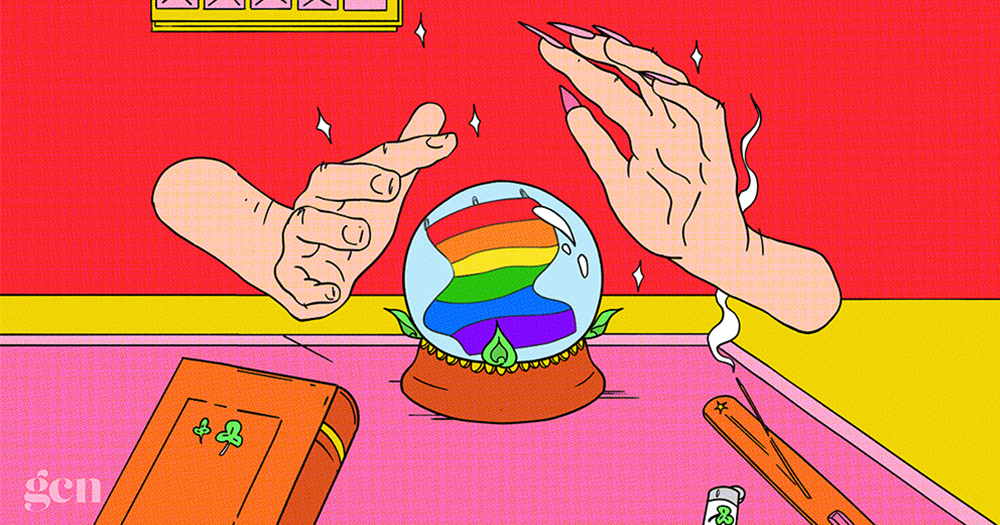GCNnewvoices in partnership with BeLonG To will platform the opinions and thoughts of LGBTQ+ young writers from across the country, speaking about issues that matter to them. Seán Delaney shares the need for young people to know their own Irish queer history.
“Are you sure you’re gay?” was a phrase I distinctly remember hearing after a girl I had just met in a club saw the blank look on my face when she asked if I love RuPaul’s Drag Race. The girl was straight and I had just gotten to the point where I felt comfortable coming out to randomers (when drunk and was sure they would remain strangers).
I remember distinctly feeling wounded by her comment and her look of disappointed confusion. I remember feeling as though my queerness was being called into question, that I wasn’t queer enough. In hindsight I should have clapped back at the girl, asking her if she knew who Declan Flynn was, or what the Campaign for Homosexual Law Reform was. I doubt she’d have much of an answer for me. Like me, she may have left wondering how exactly do we define queerness or queer culture.
So what do we mean? This isn’t a question that can be answered broadly, but we can start by understanding our history, as queer people in Ireland. A history dating back to the 1861 criminalisation of homosexuality that forced Oscar Wilde to Reading Gaol, and was only overturned in 1993. A history that saw David Norris losing to the High Court and Supreme Court in Ireland in the ’70s, to finally win at the European Court of Human Rights in 1988 and force Ireland to decriminalize homosexuality. It’s the story of Declan Flynn who was murdered in Dublin 1983, leading to a campaign to highlight violence against queer people in Ireland.
But why am I telling you this story? Because it’s a story I wasn’t told.
I had to actively search out these historic moments in our Irish queer history and put the narrative together myself. How I ended up doing this was because I found myself wondering how the Stonewall Riots in 1969 really affected me, as a gay man in Ireland. I wondered if we had our own version of Stonewall, if we had our own history to celebrate.
We are lucky enough in recent years to have seen a massive surge in queer representation in our media, but it’s important also to note that this does not come without its complications. Most of the media we consume hails from the United States, so naturally the story we are being told is a distinctly American one. Furthermore, as queerness and queer culture gains more popularity, corporations inevitably subsume it. Shows like Ru Paul’s Drag Race do show an aspect of queer culture, but its success also lies in diluting it to sell it to a straight audience. We’re not getting the whole story, and we won’t find the whole story on television.
As a queer young person, you’re born without a community, without a story – you have to find it. As a young queer person in Ireland I have to wonder who is telling our young people our stories? I’m still not convinced US television is up to the job. So I urge my fellow young queers to be curious and go looking through the ever-growing material on queer culture in Ireland and find exactly what it says to you.
Keep up to date with #GCNnewvoices across all our social media.
© 2020 GCN (Gay Community News). All rights reserved.
Support GCN
GCN is a free, vital resource for Ireland’s LGBTQ+ community since 1988.
GCN is a trading name of National LGBT Federation CLG, a registered charity - Charity Number: 20034580.
GCN relies on the generous support of the community and allies to sustain the crucial work that we do. Producing GCN is costly, and, in an industry which has been hugely impacted by rising costs, we need your support to help sustain and grow this vital resource.
Supporting GCN for as little as €1.99 per month will help us continue our work as Ireland’s free, independent LGBTQ+ media.

comments. Please sign in to comment.